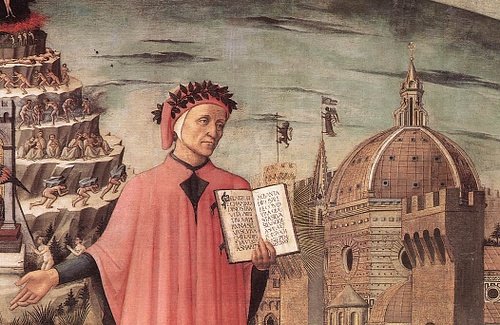Italy: Who was Dante Alighieri and why is The Divine Comedy so important?

Rome: Dante Alighieri is making news around the world, 700 years after his death, particularly in Italy where is a national icon.
Born in Florence in 1265, the mediaeval poet and philosopher would become known as the Father of the Italian language thanks to his epic work, The Divine Comedy.
But why exactly did La Divina Commedia make such an indelible impression on both literature and theology, and why is it so important seven centuries after it was written?
Representing a 14th-century vision of the afterlife, the long narrative poem describes Dante’s journey through the three realms of the dead: Inferno (hell), Purgatorio (purgatory), and Paradiso (heaven).
Crucially, Dante wrote the poem’s 14,233 lines in the vernacular, opting for the Tuscan dialect which was accessible to the masses rather than the traditional Latin reserved for the most educated readers.
This unorthodox approach paved the way for Italian writers such as Boccaccio and Petrarch, while his depictions of Hell, Purgatory and Heaven had a profound influence on western art, from Sandro Botticelli to William Blake.
Dante began composing the groundbreaking trilogy in Florence in or around 1308, completing the masterpiece in Ravenna a year before his death in 1321.
Today, The Divine Comedy is widely considered the most important poem of the Middle Ages, and the pre-eminent work in Italian literature.
It is also viewed as one of the greatest works of world literature; from the Romantics to the contemporary, there are few poets in western literature who have not been inspired by Dante.
The first printed edition of the book was published in Foligno on 11 April 1472, and there are 14 of the original 300 copies still in existence.
2021 marks the 700th anniversary of Dante’s death, with celebratory cultural events taking place in his honour across Italy, particularly on 25 March for Dantedì, his national day.





